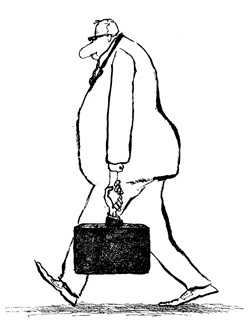 We don't know what the chairman of last month's meeting in London actually had in mind while calling for "the strongest possible political leadership" to prevent Nepal from becoming a failed state ("Nepal must not be allowed to become a failed state", #100). A democratic version of Jang Bahadur nevertheless seems to have become the most sought-after politician in the country. This obsession with the oxymoron obscures Nepal's primary ailment: it's addiction to a brand of politics it can't afford.
We don't know what the chairman of last month's meeting in London actually had in mind while calling for "the strongest possible political leadership" to prevent Nepal from becoming a failed state ("Nepal must not be allowed to become a failed state", #100). A democratic version of Jang Bahadur nevertheless seems to have become the most sought-after politician in the country. This obsession with the oxymoron obscures Nepal's primary ailment: it's addiction to a brand of politics it can't afford. Multiparty elections are hugely expensive and activists are getting fussier. There are too many variables only wads of money can control. The party/faction in power benefits from incumbency. Political envy in rival camps breeds unhealthy competition. At the macro-economic level, elections entail quid pro quos.

Although state failure is not a new phenomenon, it has become much more relevant to the post-9/11 international discourse. "In less interconnected eras [in the past], state weakness could be isolated...," Robert I Rotberg, director of the Programme on Intrastate Conflict at Harvard University's John F Kennedy School of Government, writes in the July/August 2002 issue of Foreign Affairs. "Now, these states pose dangers not only to themselves and their neighbors but also to peoples around the globe. Preventing states from failing, and resuscitating those that do fail, are thus strategic and moral imperatives."
But lack of homogeneity poses a problem. "The nature of state failure varies from place to place, sometimes dramatically. Failure and weakness can flow from a nation's geographical, physical, historical, and political circumstances, such as colonial errors and Cold War policy mistakes," Rotberg adds. (Back to the Air and Water Theory of Politics, eh?) Lack of development could trigger hostility and violence that could spill over to other countries, which believe they have the right to act in self-defence. Call it "nation building", "humanitarian intervention", "defensive imperialism", the fact remains that national sovereignty is shrinking-and faster-in poorer countries.
Nepal must begin the process of breaking the cycle of poor governance and corruption by overhauling election-campaign financing. Public awareness against corruption cannot work in a vocation that puts a monetary value on achievement. Barring corrupt politicians from contesting elections would raise nasty questions in a society susceptible to political witchhunts. Requiring members of the House of Representatives to seek re-election from the same constituency could infringe their freedoms of movement and choice. Running background checks on candidates runs the risk of infuriating our increasingly vocal civil libertarians. Term limits can't be effective without the cooperation of those affected. Setting minimum education qualification for candidates is out of the question in a country with rampant illiteracy. Parties and candidates can't be expected to make a full disclosure of donors and expenditure unless they're reasonably sure everybody else is being honest.
We must mobilise external resources. Donor governments should be encouraged to become more generous in the cause of saving democracy. Since they already influence our politics through the tiniest of micro-credit projects, they might as well become more active in directly funding political parties. The Bretton Woods institutions could design a basket fund that would support parties by calculating the percentage of popular votes they received in the last election weighted with their voting record on legislation facilitating structural adjustment programmes. Electoral laws should be amended to ease the flow of direct foreign political investment. This way, donor governments, agencies and consortiums could provide matching grants to candidates whose campaign pledges conform to their respective philosophies.
The nation's single-minded focus should be on holding free and fair elections in November. (Even if the Supreme Court reinstated the Lower House, it would only be postponing our moment of truth by three years at the most.) Election manifestos have always looked alike and we know what the star campaigners are going to say, anyway. It is important to ensure that the people and their leaders feel the results are genuine.
We should consider ways of drawing international assistance for the mechanics and logistics of elections. The North Atlantic Treaty Organisation, torn by an identity crisis since the fall of the Berlin Wall, may find a useful role here. After 9/11, NATO headquarters in Brussels invoked for the first time in the organisation's history the mutual self-defence article of its charter, whereby an attack on any member is deemed an attack on all. Once Nepal's political viability is established as an integral part of the global war on terror, our embassy in the Belgian capital can go into the details of deploying NATO soldiers and supplies across the country during each election cycle. Even if we don't get a modern-day version of the wily 19th century autocrat, we might be able to breathe easier.


